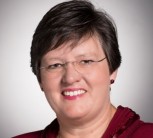For analysts and academics alike, the world of development policy changes quickly. Decision-makers are faced with increasing complexity and a growing list of elements that have to be taken into account in policy reform and design.

Professor Sheryl Hendriks completed her undergraduate studies, honours, master’s and PhD at the former University of Natal, where she also taught until joining the University of Pretoria (UP) in 2010.
Moving to UP expanded and enhanced her research, not only because of the geographic proximity to government but because it allowed her to network with colleagues at UP, in Africa and internationally. Prof Hendriks says that the University’s reputation as well as UP management’s support of transdisciplinary research have been invaluable in advancing her research profile, impact and reach.
Research in food security policymaking is essential to achieve the Sustainable Development Goals (SDGs) and advance development. Understanding the causes, outcomes and impact of policy decisions related to a range of sectors (agriculture, health, trade, welfare etc.) helps to identify potential policy choices, combinations and directions. Ultimately, these decisions determine the levels of poverty, inequality and food insecurity experienced by households.
Prof Hendriks leads a large research group that explores the emerging field of improving food systems to ensure fairer, healthier diets and sustainability. The group includes postgraduates and colleagues from UP’s Department of Agricultural Economics, Extension and Rural Development in the Faculty of Natural and Agricultural Sciences (NAS), and connects with colleagues in networks across Africa and beyond. Under the RETHINK@NAS initiative ¬– which allows for University-driven community projects that support transformation in all its forms – this group will expand across faculties.
This work was carried out in Prof Hendriks’s role as a member of the United Nations Food Systems Summit (UNFSS) Scientific Group and contributed a significant analysis to guide the group’s 2021 deliberations and plan of work. It will also expand to supporting the country implementation of actions to support the true value of food. The work was inspired by Prof Lawrence Haddad (leader of the UNFSS Action Track on ending hunger) and Prof Joachim von Braun (chair of the UNFSS Scientific Group).
Prof Hendriks says that since 2006, her academic mentor has been Dr Ousmane Badiane, who introduced her to the dynamics of African development and has provided her with countless opportunities to work directly in applying research in practical support to African governments as they seek to achieve food security. “Through my engagement in various think-tanks and policy engagements, I find meaning in life – contributing to decisions that can improve the lives of ordinary people,” she says. “This is a dream come true for me.”
Young people interested in following her field of research need to be passionate about helping others and acutely aware of the bigger picture in development, Prof Hendriks advises. Food security analysis can be attempted only at postgraduate level, she adds, when students have a solid grounding in a relevant field and have developed skills to cope with complex thinking.
When not pursuing research endeavours, Prof Hendriks maintains a rose and herb garden, sews, scrapbooks and walks her dogs.
 Story
Story
University of Pretoria (UP) researchers have found that the antioxidant content of certain types of tea can be likened to that found in recommended portions of fruit and vegetables.
 Infographic
Infographic
Half a cup of black tea, oolong tea or green tea contained the same amount of antioxidants with radical scavenging capabilities (RSC) as that of a 200mg vitamin C tablet.
 Story
Story
Researchers at the University of Pretoria (UP) may have identified the gene that is responsible for diet-related obesity. By exploring the role of the novel gene Slc7a8, they have made a potential breakthrough in current knowledge about the cellular mechanisms that drive fat accumulation. This understanding is crucial in developing effective treatments.
Copyright © University of Pretoria 2025. All rights reserved.
Get Social With Us
Download the UP Mobile App